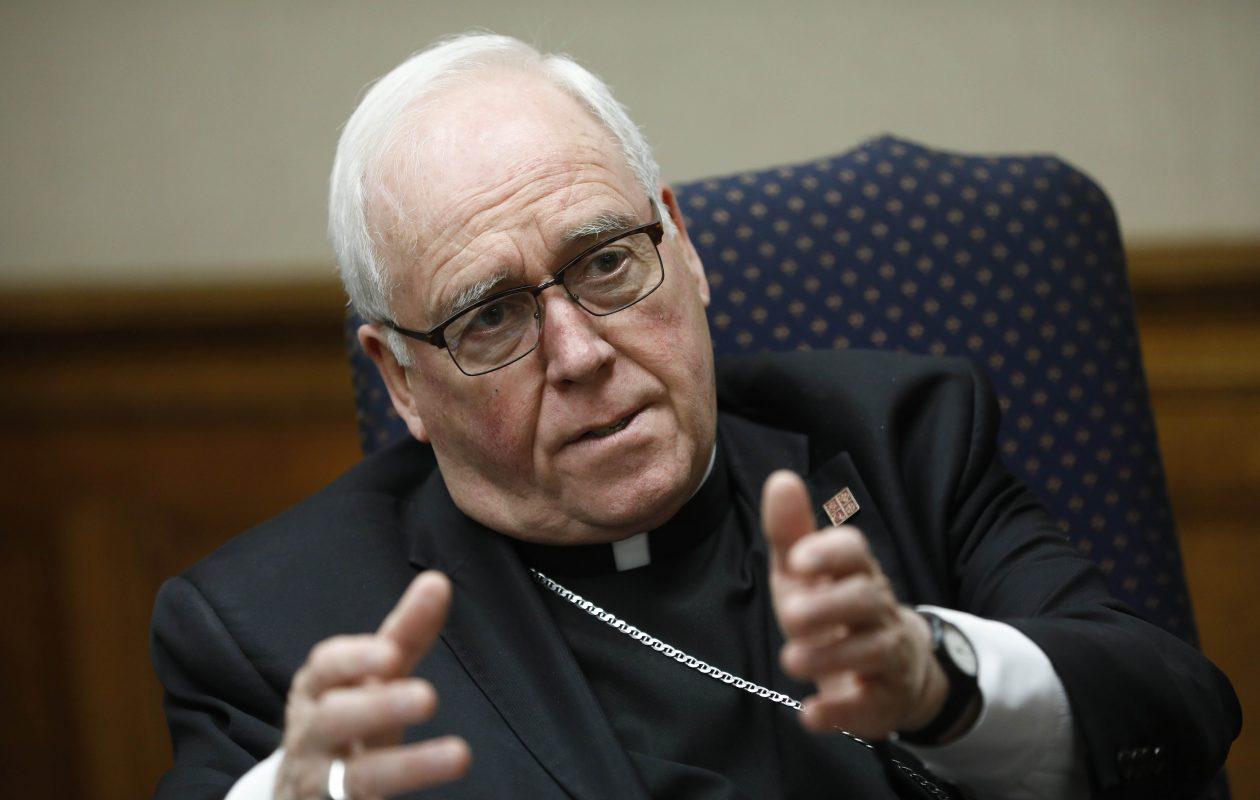|
Bishops mum on clergy sex abuse turmoil in Buffalo Diocese, Malone
By Jay Tokasz
A firestorm in the Buffalo Diocese over Bishop Richard J. Malone’s handling of clergy molestation allegations was not specifically mentioned when more than 250 Catholic bishops, including Malone, gathered last week in Baltimore to address the church’s ongoing sex abuse crisis. The bishops, at least in public, steered clear of commentary on the Buffalo Diocese or Malone, who has refused to step down despite calls from some Western New York Catholics for his resignation. The bishops focused in three days of meetings on making themselves more accountable for how they handle abuse cases, without criticizing a single bishop or diocese for mismanaging or covering up such cases. The only public criticism of a bishop was levied at Archbishop Theodore E. McCarrick, who resigned as a cardinal in July and was removed by Pope Francis from public ministry after revelations of sexual misconduct with seminarians dating back decades. McCarrick, who is being investigated by the Vatican and others, did not attend the meetings. The absence of commentary on the Buffalo Diocese in the public debate among bishops probably cast more attention on Malone, said Deacon Paul Snyder III. “I think it was not mentioned because it was so profoundly on the minds of all the other bishops,” said Snyder, the first to publicly call for Malone to resign. Snyder, a businessman who serves as a deacon at St. Mary Church in Swormville, said several national media outlets inquired with him about the lack of discussion at the bishops conference about the Buffalo Diocese, where revelations of abuse cover-ups have been unfolding since February. Bishops have no authority over each other. But in October, Snyder sent a package of materials to several bishops who attended the meetings, alleging Malone directed an active cover-up of abuses and encouraging the bishops to ask Malone to resign “as a matter of fraternal correction.” Malone, 72, has said he will not step down until after his 75th birthday, when he is required to submit his resignation to the pope. The bishop has apologized publicly for not acting sooner to remove from ministry one priest accused of sexual misconduct with a young man and another priest accused of inappropriate behavior with a child and sexual abuse of young men. Snyder also wrote to Archbishop Christophe Pierre, the pope’s representative in the U.S., urging the Vatican to intervene in Buffalo. Pierre wrote back to Snyder within a few days thanking him for the package and assuring the deacon that “even before I received your letter, events within the Diocese of Buffalo had not escaped my attention.” Pierre made no mention of Buffalo in his address at the bishops’ meeting. The News requested through the U.S. Catholic Conference of Bishops to interview Cardinal Timothy M. Dolan of the Archdiocese of New York City, Cardinal Daniel N. DiNardo of the Archdiocese of Galveston-Houston and Cardinal Sean P. O’Malley of the Archdiocese of Boston. None of the cardinals responded. Bishop Robert P. Deeley of the Diocese of Portland, Maine, said in an interview that Malone did a “wonderful job” as Portland's bishop prior to being appointed in Buffalo. “There were no problems, no issues to be dealt with in terms of the handling of sex abuse,” said Deeley. Advocates for abuse victims have been highly critical of how Malone treated victims in the Portland Diocese and allowed some priests accused of abuse to stay in "restricted" ministry. Deeley said he couldn’t comment on Malone’s handling of cases in the Buffalo Diocese, which was featured in an episode of “60 Minutes” in late October. “I have no idea what’s happening in Buffalo,” he said. When pressed on whether “fraternal correction” might be applied in Malone’s case, Deeley responded that he had “no idea.” “That wouldn’t come to my attention. I’m just a lowly diocesan bishop in Maine. He’s a lowly diocesan bishop in Western New York. Why would it come to me? I don’t have jurisdiction over it,” he said. “The Metropolitan, Cardinal Dolan, might do something about it. It would be within that framework that the fraternal correction works.” The notion of “fraternal accountability” was raised during the meetings by Francesco Cesareo, president of the National Review Board, who gave a talk to the bishops, and later by Auxiliary Bishop Andrew H. Cozzens of the Archdiocese of Saint Paul & Minneapolis. Cozzens said he dreamed of a day when a bishop who is in trouble with accusations in the media could turn to his fellow bishops and ask for their advice on whether he should resign for the good of the church. He also said he dreamed of a day when bishops will be strong enough to recommend that another bishop step aside. “Those are difficult conversations to have. Nobody wants to have those conversations, but they can be very important conversations to have,” said Cozzens. Malone did not comment during the public discussions about new bishop accountability standards being considered by the U.S. Conference of Catholic Bishops. The bishops of New York as a whole were noticeably quiet, including Dolan and Syracuse Diocese Bishop Robert J. Cunningham, a former high-level administrator in the Buffalo Diocese. Retired Bishop Donald W. Trautman of the Erie Diocese, also a former auxiliary bishop and high-ranking administrator in the Buffalo Diocese, remarked during one of the public sessions that the bishops "should not be so naive as to accept every government report, every grand jury report, as being hopefully accurate or honest." Trautman's handling of allegations of clergy sexual abuse in Erie was heavily criticized in a Pennsylvania grand jury report.
|
.
Any original material on these pages is copyright © BishopAccountability.org 2004. Reproduce freely with attribution.
